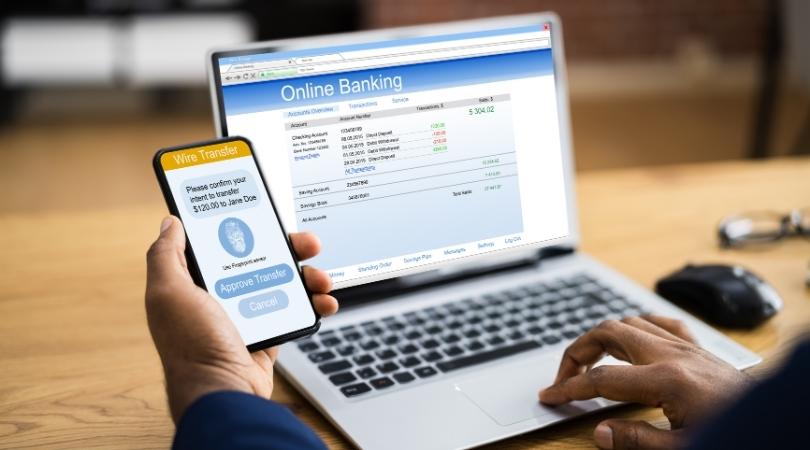Iban: list of countries that use it for bank transfers
Bank transfers are an essential component of global financial transactions, and the International Bank Account Number (Iban) plays a crucial role in this system. Predominantly used in Europe and beyond, the Iban simplifies and secures international payments. But which are the exact countries using Iban? This article explores the broad range of nations that have adopted this standardized system.

What is Iban?
The Iban, or International Bank Account Number, is a unique code used to identify an individual bank account internationally. Initially developed by the European Committee for Banking Standards (ECBS), its goal was to improve communication and processing for cross-border payments. An Iban consists of several distinct parts, including a country code, two check digits, and a specific bank identifier. This format ensures each Iban is unique and can be easily verified to avoid transaction errors.
The length of an Iban varies by country but can contain up to 34 characters. Iban validation is facilitated by an integrated check algorithm, ensuring the accuracy of entered information before proceeding with transactions. This minimizes error risks and enables the swift processing of financial transfers.
SEPA zone countries
The SEPA (Single Euro Payments Area) includes the majority of European countries that have harmonized their payment systems to use the Iban for both domestic and international transactions. This initiative aims to enhance the efficiency and security of payments within the region. Below are some of the primary countries using Iban in the SEPA zone:
- Germany
- France
- Spain
- Italy
- Netherlands
- Belgium
- Austria
- Portugal
- Greece
- Ireland
In addition to the eurozone countries listed above, the SEPA zone also includes nations that do not use the euro as their official currency but have nonetheless adopted the Iban to standardize financial transactions. These include countries such as the United Kingdom, Norway, and Switzerland.
Adoption by other European nations
Beyond the original eurozone members, other European countries outside the European Union also use the Iban. Among these are:
- Iceland
- Liechtenstein
- Norway
- Switzerland
These countries have adopted the Iban to streamline international payments and ensure high compatibility with European payment systems. This facilitates efficient transaction processing, even though these nations are not fully integrated into the eurozone.
Expansion of Iban use outside Europe
Although the Iban originated in Europe, its efficiency and simplicity have led to its adoption by several countries beyond the European continent. These nations have recognized the value of integrating this standardized system to improve their international payment processes.
| Country | Country code | ||
| Saudi Arabia | SA | ||
| Bosnia-Herzegovina | BA | ||
| Brazil | BR | ||
| Israel | IL | ||
| Kuwait | KW | ||
| Lebanon | LB | ||
| Mauritania | MR | ||
| Pakistan | PK | ||
| Tunisia | TN |
The adoption of the Iban by these countries demonstrates global recognition of its benefits. By ensuring precise and unambiguous identification of bank accounts, the Iban reduces errors and increases the efficiency of cross-border payments. Many countries continue to consider or implement Iban usage in their financial infrastructures due to these clear advantages.
Common practices and future improvements
With the growing use of Iban worldwide, even daily operations between entities located on different continents have become seamless. Businesses that frequently perform international payments benefit from this standardization, ensuring speed and security in financial transactions.
Simultaneously, ongoing efforts to refine the Iban format include regular updates to its standards to meet current technological and logistical advancements. This forward-looking approach ensures that the system remains relevant and adaptable to the constant changes in the global banking sector.
Verification and validation of Iban
One of the notable features of the Iban is its ability to verify and validate account numbers before executing transactions. The Iban validation algorithm effectively detects potential errors during data entry, helping prevent unnecessary delays and complications. Before initiating a bank transfer, this validation encourages a preliminary check to ensure the accuracy of the provided information.
For users, this proactive verification significantly reduces risks associated with incorrect payments. Banks and financial institutions strongly recommend this practice to guarantee smooth and error-free transactions. Additionally, many online tools allow users to quickly verify an Iban, making the process even more accessible and user-friendly.
Bic and related details
In addition to the International Bank Account Number, some payments may require a BIC (Bank Identifier Code). This unique code identifies the recipient bank in a specific transaction. The BIC often works alongside the Iban to provide double assurance of the accuracy of financial details used in a transfer.
If your Iban includes a BIC, ensure you have all the necessary information before making any transaction. The BIC also plays a crucial role in regions where banking regulations require this additional detail to complete a payment.
How to find your Iban and BIC
Finding your Iban and BIC may seem challenging, but this information is usually accessible through your bank statements or online customer account. Many banks display this information visibly to facilitate its use by customers. If you need additional assistance, contacting your bank's customer service is often very helpful for obtaining these precise details.
It is also possible that various official documents sent by your financial institution contain these crucial details, so carefully reviewing all received paperwork can help ensure you don’t miss any important information.
The Iban has revolutionized how we conduct international transactions by standardizing and simplifying cross-border payments. From European countries to vast territories in the Middle East and beyond, the Iban offers security and efficiency. For individuals and businesses frequently performing international payments, knowing and understanding Iban usage remains essential for navigating the global financial landscape smoothly.
The multiple advantages of a card without a bank account
Can I cancel a bank transfer? Everything you need to know
Similar articles

What amount leads to a banking ban?

Travelling Abroad with a Prepaid Card: The Complete 2025 Guide
The information provided on this blog is presented for informational purposes only and has no contractual or legal value. Although we strive to ensure the accuracy, completeness and updating of the published content, it may contain errors, omissions or inaccuracies. Carte Veritas and the authors of the articles cannot be held responsible for decisions or actions taken based on the information contained in this blog. Any use of this information is made at your own risk and under your sole responsibility. We encourage you to consult a qualified professional or an expert for any important question or decision relating to the subjects discussed. In addition, the information presented on this site may be modified or updated without notice. By visiting this blog, you agree that Carte Veritas and its partners are released from any liability concerning losses, direct or indirect damages, or consequences arising from the use of the contents of this site, whether they are linked to errors, omissions or the interpretation of the information published.
